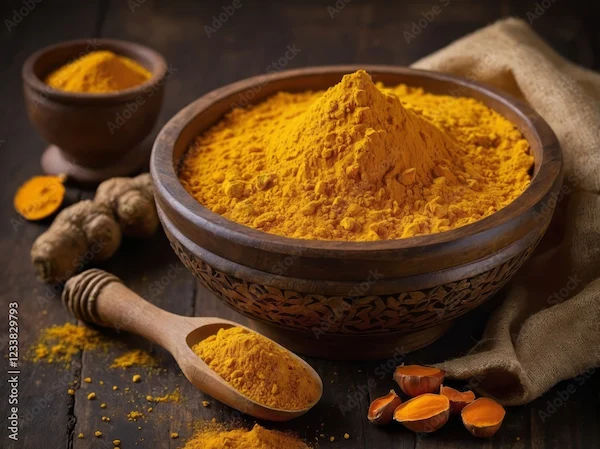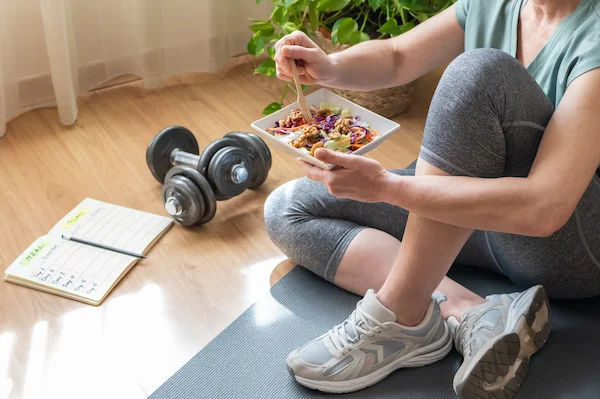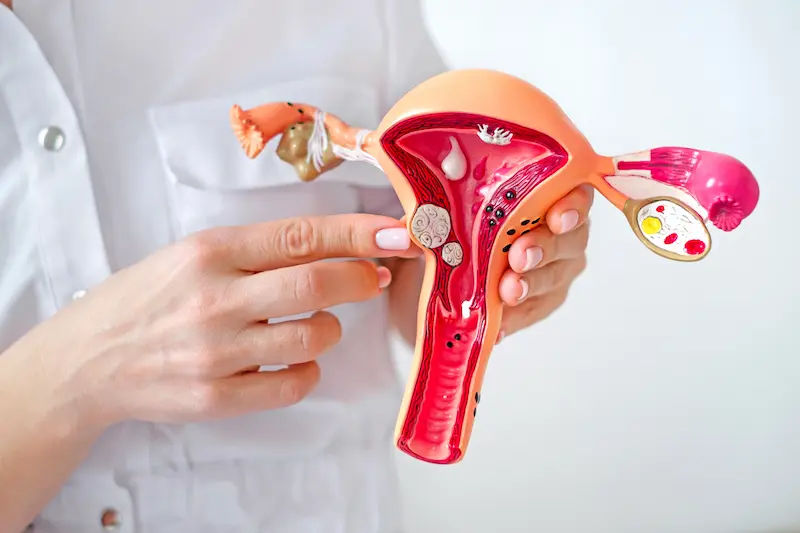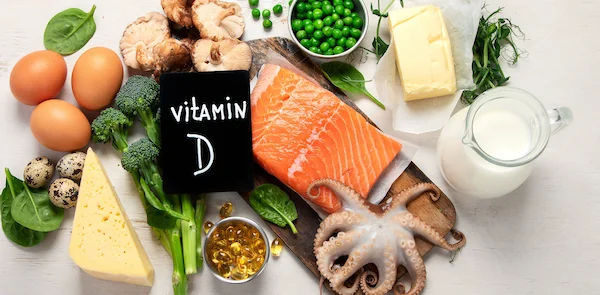The Ultimate Guide to Women's Health Nutrition
Discover the ultimate guide to women’s health nutrition. Learn how to balance macronutrients, boost energy, support hormones, and adapt your diet for every life stage.

Written by Dr. Dhankecha Mayank Dineshbhai
Reviewed by Dr. M L Ezhilarasan MBBS
Last updated on 13th Jan, 2026

Introduction: Why Nutrition is Your Foundation for Health
Navigating the world of health advice can be overwhelming. For women, whose bodies undergo unique hormonal changes throughout life, understanding nutrition is more than just counting calories—it’s about harnessing the power of food to fuel energy, balance hormones, build strength, and support long-term health. From the rollercoaster of reproductive years to the transition of menopause, what you eat directly impacts how you feel every single day. This comprehensive guide cuts through the noise to provide evidence-based advice on women’s health nutrition. We will explore the essential macronutrients and micronutrients your body craves, tailor dietary advice to every life stage, and address specific health concerns like PCOS and bone density. Whether you’re looking to boost your energy, support your mood, or build a resilient body for decades to come, this guide will empower you with the knowledge to make informed choices about your diet and overall wellness.
The Power of Macronutrients: Balancing Your Plate
Macronutrients—protein, carbohydrates, and fats—are the pillars of your diet, providing the energy and raw materials your body needs to thrive. Balancing them correctly is key to optimal women’s health.
Protein: The Building Block for Strength and Satiety
Protein is crucial for building and repairing tissues, producing enzymes and hormones, and maintaining muscle mass—which is vital for a healthy metabolism. For women, adequate protein intake supports strong hair, skin, and nails, and promotes feelings of fullness, which can aid in maintaining a healthy weight. Excellent sources include lean meats, fish, eggs, legumes, lentils, tofu, and Greek yoghurt. A good target is to include a source of protein in every meal.
Complex Carbohydrates: Your Body’s Preferred Fuel
Carbs are not the enemy! Complex carbohydrates are the primary source of energy for your body and brain. They are packed with fibre, which aids digestion, helps regulate blood sugar, and lowers cholesterol. Instead of refined carbs (white bread, pastries), focus on whole food sources like oats, quinoa, brown rice, sweet potatoes, and wholegrain bread. These foods provide sustained energy, preventing the mid-afternoon crash associated with sugary snacks.
Healthy Fats: Essential for Hormones and Health
Fats are fundamental for absorbing fat-soluble vitamins (A, D, E, K), protecting organs, and regulating hormonal balance. Especially for women, fats are necessary for producing oestrogen and progesterone. Incorporate unsaturated “healthy fats” like avocados, nuts, seeds, and olive oil. Omega-3 fatty acids, found in fatty fish like salmon and in flaxseeds, are particularly important for reducing inflammation and supporting brain health.
Essential Micronutrients Every Woman Needs
While needed in smaller quantities, vitamins and minerals are indispensable for countless bodily functions.
Consult a Nutritionist for Personalised Advice
Iron: Combating Fatigue and Supporting Blood Health
Women are at a higher risk of iron deficiency due to menstruation. Iron is a core component of haemoglobin, which carries oxygen in your blood. Low iron can lead to anaemia, causing fatigue, weakness, and pale skin. There are two types: heme iron (from animal sources like red meat and poultry, more easily absorbed) and non-heme iron (from plant sources like spinach, lentils, and fortified cereals). Pairing non-heme iron with a source of Vitamin C (e.g., bell peppers or citrus) can enhance absorption. If you experience persistent fatigue, a simple blood test can check your iron levels. Apollo24|7 offers convenient home collection for tests like CBC to evaluate this.
Calcium and Vitamin D: The Dynamic Duo for Bone Strength
This pair works together to build and maintain strong bones, helping to prevent osteoporosis later in life. While dairy products are well-known sources, calcium is also found in leafy greens, almonds, and fortified plant milks. Vitamin D, which we primarily get from sunlight, is crucial for calcium absorption. However, many women are deficient. Dietary sources include fatty fish, egg yolks, and fortified foods. A doctor can recommend a Vitamin D test if you suspect a deficiency; Apollo24|7 offers home collection for this as well.
Folate (Folic Acid): Crucial for Reproduction and Beyond
Folate is a B-vitamin vital for cell growth and the formation of DNA. It’s critically important for women of childbearing age as it helps prevent neural tube defects in early pregnancy. Even for women not planning a pregnancy, folate supports energy production and brain function. Find it in dark leafy greens, citrus fruits, beans, and fortified grains.
Nutrition Through Every Life Stage
A woman’s nutritional needs evolve dramatically over her lifetime.
Reproductive Years: Fuelling Fertility and Vitality
During these years, a balanced diet rich in iron, folate, and omega-3s supports a regular menstrual cycle and overall vitality. Focusing on whole foods and maintaining stable blood sugar can help manage conditions like PCOS and PMS symptoms.
Pregnancy and Lactation: Eating for Two (or More!)
Nutritional needs skyrocket during this time. Key priorities include increased calories, protein, folate, iron, calcium, and choline. Prenatal vitamins are essential, but they supplement, don’t replace, a healthy diet. Hydration is also paramount, especially for breastfeeding mothers.
Perimenopause and Menopause: Navigating Hormonal Shifts
As oestrogen levels decline, women become more susceptible to weight gain (particularly around the abdomen), bone loss, and heart disease. Prioritising protein, calcium, vitamin D, and phytoestrogens (found in soy, flaxseeds) can help manage symptoms. Reducing processed foods, sugar, and alcohol can also help mitigate hot flushes and mood swings.
Beyond Food: Hydration, Gut Health, and Mindful Eating
The Critical Role of Hydration
Water is involved in every bodily process, from temperature regulation to joint lubrication and nutrient transport. Dehydration can manifest as fatigue, headaches, and poor concentration. Aim for at least 8–10 glasses of water daily, more if you are active.
Gut Health: The Link Between Your Microbiome and Well-being
A thriving gut microbiome is linked to improved digestion, a stronger immune system, and even better mental health. Support your gut by eating a diverse range of fibre-rich plants (fruits, veggies, whole grains) and incorporating fermented foods like yoghurt, kefir, and kimchi, which provide beneficial probiotics.
Conclusion: Your Journey to Lifelong Health
Your journey with women’s health nutrition is deeply personal and ongoing. There is no one-size-fits-all solution, but the core principles remain: prioritise whole, nutrient-dense foods, listen to your body’s changing needs, and view food as a source of nourishment and joy, not restriction. By understanding the powerful role of key nutrients and adapting your diet through each life stage, you are investing in your long-term vitality, strength, and well-being. Start with one small change—perhaps adding an extra vegetable to your dinner or drinking one more glass of water—and build from there. If you have specific health concerns or conditions like PCOS or thyroid issues, consulting a doctor or registered dietitian can provide personalised guidance. You can easily consult a specialist online with Apollo24|7 to create a nutrition plan tailored just for you.
Consult a Nutritionist for Personalised Advice
Consult a Nutritionist for Personalised Advice

Ms. Soma Saha
clinical nutrition
17 Years • B.Sc. - Home Science (Food & Nutrition), M.Sc. - Home Science (Food & Nutrition)
Kolkata
Dr Utsa Basu Clinic, Kolkata
(50+ Patients)

Ms. Samapti Maity
Dietician
16 Years • MSc. (Clinical Nutrition & Dietitics), NDEP, Course in Maternal Infant Young Child Nutrition.Diploma in Sports Nutrition, Diploma in Diabetic educator, FODMAP Specialist
Kolkata
BIENETRE CLINIC, Kolkata

Ms. Suhita Sinha
Dietician
8 Years • BSC Food & Nutrition
Kolkata
Chikitsa Medicare Centre Pvt. Ltd.Sattelite Centre Behala Chowrasta, Kolkata

Ms. Sushma Jaiswal
Dietician
42 Years • M.Sc.(Food & Nutrition)
Bengaluru
Swasthya Nutrition, Bengaluru

Ms. Neelanjana J
Dietician
5 Years • Bsc., Msc. Nutrition and Dietetics specialised general weight management, PCOS/PCOD weight loss and Diabetes management. A clinical dietitian with 4+ year experience specializing in evidence-based, result-oriented nutrition therapy. I have extensive experience in weight loss, thyroid management, PCOD/PCOS, weight gain, and diabetes & prediabetes care. My approach is personalized, practical, and sustainable—focusing on helping individuals achieve long-term lifestyle change rather than quick fixes. I work closely with clients to understand their medical history, lifestyle, and goals, and then design customized diet plans that support hormonal balance, metabolic health, and overall wellbeing. My goal is to make nutrition simple, realistic, and effective—so you see measurable results and feel your healthiest self.Auther in Health benefits of jackfruit (Artocarpus heterophyllus Lam.) seeds: A review (2023) The Pharma Innovation Journal Co- Auther in Malnutrition in Women: A review (2023) The Pharma Innovation Journal. Highfield Level 3 in HACCP. Highfield Level 4 International Award in Food Safety Managment
Bengaluru
Apollo Clinic, JP nagar, Bengaluru
Consult a Nutritionist for Personalised Advice

Ms. Soma Saha
clinical nutrition
17 Years • B.Sc. - Home Science (Food & Nutrition), M.Sc. - Home Science (Food & Nutrition)
Kolkata
Dr Utsa Basu Clinic, Kolkata
(50+ Patients)

Ms. Samapti Maity
Dietician
16 Years • MSc. (Clinical Nutrition & Dietitics), NDEP, Course in Maternal Infant Young Child Nutrition.Diploma in Sports Nutrition, Diploma in Diabetic educator, FODMAP Specialist
Kolkata
BIENETRE CLINIC, Kolkata

Ms. Suhita Sinha
Dietician
8 Years • BSC Food & Nutrition
Kolkata
Chikitsa Medicare Centre Pvt. Ltd.Sattelite Centre Behala Chowrasta, Kolkata

Ms. Sushma Jaiswal
Dietician
42 Years • M.Sc.(Food & Nutrition)
Bengaluru
Swasthya Nutrition, Bengaluru

Ms. Neelanjana J
Dietician
5 Years • Bsc., Msc. Nutrition and Dietetics specialised general weight management, PCOS/PCOD weight loss and Diabetes management. A clinical dietitian with 4+ year experience specializing in evidence-based, result-oriented nutrition therapy. I have extensive experience in weight loss, thyroid management, PCOD/PCOS, weight gain, and diabetes & prediabetes care. My approach is personalized, practical, and sustainable—focusing on helping individuals achieve long-term lifestyle change rather than quick fixes. I work closely with clients to understand their medical history, lifestyle, and goals, and then design customized diet plans that support hormonal balance, metabolic health, and overall wellbeing. My goal is to make nutrition simple, realistic, and effective—so you see measurable results and feel your healthiest self.Auther in Health benefits of jackfruit (Artocarpus heterophyllus Lam.) seeds: A review (2023) The Pharma Innovation Journal Co- Auther in Malnutrition in Women: A review (2023) The Pharma Innovation Journal. Highfield Level 3 in HACCP. Highfield Level 4 International Award in Food Safety Managment
Bengaluru
Apollo Clinic, JP nagar, Bengaluru
More articles from General Medical Consultation
Frequently Asked Questions
What is the best vitamin supplement for women?
While a balanced diet is best, many women benefit from a general multivitamin to fill nutritional gaps. The most common specific supplements recommended are Vitamin D (for those with limited sun exposure), Iron (for those with heavy periods or deficiency), and a Prenatal with Folic Acid for women who are pregnant or trying to conceive. It’s best to get tested and consult a doctor before starting any new supplement regimen.
What foods should I eat to help balance my hormones?
Focus on a diet rich in fibre (whole grains, vegetables), healthy fats (avocado, olive oil, nuts), and lean protein. Specific foods like flaxseeds (for lignans), cruciferous vegetables (broccoli, cauliflower), and fatty fish (for omega-3s) can support hormonal balance. Reducing sugar and processed foods is also key.
I have PCOS. What is the best diet plan for me?
A PCOS diet plan often focuses on managing insulin resistance. This includes eating complex carbohydrates with a low glycaemic index, pairing carbs with protein and fat to slow sugar absorption, and prioritising anti-inflammatory foods like leafy greens and berries. It’s highly recommended to work with a dietitian specialising in PCOS.
How can I get enough calcium if I’m lactose intolerant?
Many non-dairy foods are rich in calcium! Excellent sources include fortified plant milks (almond, soy, oat), leafy green vegetables (kale, collard greens), canned sardines and salmon (with bones), almonds, and tofu made with calcium sulphate.
What are good snacks for women’s health?
Opt for snacks that combine protein and fibre for sustained energy. Great examples include an apple with almond butter, Greek yoghurt with berries, a handful of nuts, carrot sticks with hummus, or a hard-boiled egg.




